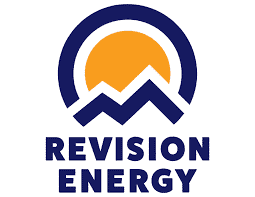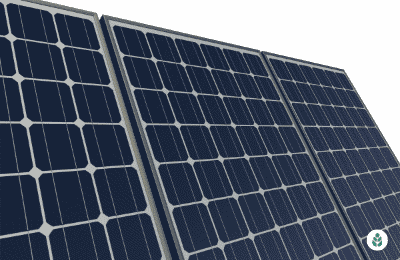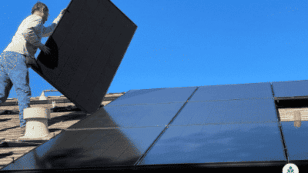
Is Solar Worth It in Maine? (2024 Homeowner's Guide)
Here’s a quick overview of solar viability in Maine:
- Maine ranks 28th in the country for solar installations.*
- The average electricity rate is 27.81 cents per kilowatt-hour.**
- The average solar payback period is 8 years.***
- Homeowners are eligible for net metering and the federal solar investment tax credit (ITC).
- The average homeowner saves $48,247 over the lifetime of their solar system.***
*According to the Solar Energy Industries Association.1
**Data from the Energy Information Administration.2
***Calculated assuming the system is purchased in cash.
Each product and or company featured here has been independently selected by the writer. You can learn more about our review methodology here. If you make a purchase using the links included, we may earn commission.
Maine ranks 28th in the country for solar adoption, has relatively limited solar incentives available for homeowners and residents use less energy than most of the country. As such, homeowners wonder if going solar is worth the investment and if the conversion will save them money. Generally speaking, solar panels are worth it in Maine, as they pay for themselves and then save an average of $48,247, which is well above the national average solar savings. However, you need to assess your home and property to make sure they’re right for you before committing.
Below, you’ll find some information on what determines if solar is right for your home in Maine. We’ll also include some information on the upsides of solar conversion in ME and some things you should understand and consider before making the switch to clean energy.
To speak with an EcoWatch-vetted professional who can help you determine whether solar is worth it for your Maine home, follow the links below.

ReVision Energy

Regional Service
Average cost
Pros
- Comprehensive service offerings
- Certified B Corp
- Many years of experience
Cons
- Relatively short workmanship warranty
- No leases or PPAs

Maine Solar Solutions

Local Service
Average cost
Pros
- Comprehensive service offerings
- Outstanding customer service
- Locally owned and operated
Cons
- No leases or PPAs

Blue Raven Solar
Pros
- Industry-leading in-house financing
- Competitive pricing
- Excellent reputation
Cons
- Doesn't offer solar batteries (coming 2022)
Watch Below: How Well Will Your Solar Panels Still Work When Covered In Snow?
How to Figure Out if Solar Panels are Worth It in Maine
Solar panels in Maine are very often a good investment that provides homeowners with substantial savings. However, they aren’t for everyone, and jumping into this renewable energy source without assessing your solar viability first could leave you losing money rather than saving it. Below are some factors you’ll want to consider before going solar in ME.
What’s Your Home Electricity Consumption?
Solar panels typically save homeowners money because they help reduce or even eliminate energy bills. As such, the more you spend on your electric bills, the higher the potential for savings and the more you stand to benefit from your panels. In general, homes that consume more than 500 kilowatt-hours are considered good candidates for solar panel installation. You can check your electric bill for usage history to see how much you consume on average.
Most Maine homeowners use around 570 kWh per month, which is very low compared to the national average of 881 kWh. While this usage suggests that solar might provide minimal savings, the electricity rate — an average of 27.81 cents — is much higher in Maine than in the rest of the US — almost double the national average of 16.79 cents. Given the high energy rates, most homes will still find solar panels worth the investment, even if they use slightly less than 500 kWh per month because the money you save with each kWh your panels produce in Maine is higher than it would be in most states.
How Much Is It To Go Solar in Maine?
The total price of solar panels in Maine depends on many factors, including the size of your home, your energy needs, the direction your roof faces and more. The average price per watt is $3.64, well above the national average of $3.33. Since energy consumption is low in Maine, the typical system is just 6 kilowatts, about half of the average elsewhere in the country. Therefore, the total average price is around $21,840 before incentives or $15,288 after the federal tax credit is considered.
Solar is more valuable in areas where energy needs or electricity rates are high. Although Mainers use far less electricity than most US residents, they pay well above average per kWh, making solar a great option for most homeowners in the area. Again, the solar savings alone in Maine prove this point — $48,247 average lifetime savings in Maine as opposed to the national average of $31,513.
What’s the Payback Period for Solar in Maine?

Appropriately-sized systems in Maine pay for themselves in an average of just 8 years, which is below the national average of 12 years. This further suggests that solar value in Maine is well above what it is in most other states.
Most Maine systems have a payoff period between 5 and 11 years. Ultimately, this means solar is more valuable in Maine than in most other states. Since panels have a lifespan of 25+ years, the additional 17+ years of electricity generation, after they pay themselves off, totals around $48,247 in Maine, on average. If your payback period is longer than the average, your ROI will be lower.
What Are Average Buy-Back Rates in Maine?
Most states have mandated net metering or an electricity buy-back program. These programs let solar customers produce more energy than they use and sell the excess back to the utility company for a credit to their bill for energy pulled from the electric grid.
Net metering is mandated by the Maine Public Utilities Commission, so all solar customers can benefit from it. However, the rate at which the energy is purchased by your electric company is not guaranteed. You should check with your electric company before signing anything, as policies can vary. Some companies might offer the retail rate, which is ideal, while others could use a below-retail rate — often called the wholesale rate or the avoided-cost rate — which is still good but less beneficial.
If you have a non-ideal net metering policy offered to you, you might need to add a battery pack to your solar power system to eliminate your electric bill entirely. Additionally, we should mention here that net metering policies throughout the country have been on the decline in the recent past, with some states abandoning the perk altogether and others, like California, downgrading to NEM 3.0, which brings a severely reduced credit rate. While there’s no current plan in place for this to occur in Maine, we believe it’s inevitable in the coming years.
If and when net billing in Maine takes a hit or gets discontinued, solar batteries are likely going to be necessary to see those high lifetime savings, as batteries provide effective on-site net metering for customers. Batteries add between $10,000 and $20,000 to your installation costs in most cases, so the initial price of conversion will also increase.
Now is your best bet to go solar in Maine and lock in the current rate before it gets downgraded.
How Much Sun Does Your Roof Receive?
Solar is more valuable in sunny areas, as more abundant sunlight means more energy production, which means more potential savings. Maine receives around 192 sunny days per year, which is below the national average of 205 days. Still, this is typically enough available sunlight to make solar panel installation a worthwhile endeavor. You will, however, need to assess your property on an individual basis. First, you’ll want to look at where your roof faces, as south-facing and west-facing roofs are the best for solar panels in the US. Additionally, trees cover an incredible 89% of the state, and heavy shading on your roof during peak sunlight hours will reduce the value of your panels.3 Shading from buildings and other structures are similarly detrimental.
What’s the Outlook on Solar in Maine?
Maine has always been an environmentally-friendly state, and it currently has lofty Renewable Portfolio Standard (RPS) goals of producing 80% of all energy production in the state via renewable energy sources by 2030. While other clean energy sources like wind power and biomass are used to help reach this goal, solar power is, by far, the leading source of clean energy in the state.
Residential solar installations have increased in popularity over the past decade, although growth has been a bit slower than expected. This could be due to the lack of solar incentives available, although there are some statewide incentives. Utility-scale solar and community solar farms have both become wildly popular in the past few years. Overall, solar is looked on favorably in Maine, and the market is expected to continue to grow in the future.
While we expect the market to grow, we do believe installations will slow a bit once net metering is downgraded or eliminated. Installers might need to find new financing options that help customers install solar PLUS battery storage and still afford the upfront or monthly payments.
Benefits of Solar Energy in Maine
Going solar in Maine provides many upsides, many of which are financial. We’ll discuss the benefits of going solar in Maine below so you know how solar can positively affect you in the Pine Tree State.
Electricity Bill Savings
The most significant upside to installing solar panels — and the reason they pay for themselves and provide savings — is the reduction they’ll provide on your utility bills. The average Maine homeowner pays $158.52 per month for electricity, which means the right size solar panel system with a good net metering program or solar battery could save you $1,902 every year. Over the lifetime of your panels, they’re expected to save you around $48,247 after they pay themselves off! Your actual savings might end up being even more substantial because energy rates are expected to continue to rise in the future. Installing solar panels basically means you’ll be locking in a lower electricity rate for the 25+ years your panels are expected to last.
Lower Taxes & Access to Other Incentives
The federal government provides a substantial tax incentive via the federal solar tax credit (ITC). The ITC is for 26% of your total solar energy system price, which averages around $6,552 in Maine. This amount is credited to your federal income tax liability for the year your panels are installed. As mentioned above, Maine has a lofty RPS goal of producing 80% of its energy from renewable sources by 2030. To help reach that goal, the state provides a few incentives to make solar conversion more appealing:
- Net Metering: Maine mandates net metering, so all solar customers will be able to route energy to the grid via their inverters and get credited for excess energy their panels produce. The rate at which you’re credited per kWh varies, so check with your power company before signing anything.
- Property Assessed Clean Energy (PACE) Program: Maine takes part in the PACE Program, which makes financing more accessible to prospective solar customers. The program limits your interest rate and your down payment, ultimately making converting more affordable.
- Community Solar: Community solar has surged in popularity in Maine over the past few years. It allows homeowners whose properties aren’t suited for panel installation or who don’t want panels on their roofs to take part in clean energy.
- Property Tax Exemption: Solar panels will bump up your home value, which normally increases your property taxes. The property tax exemption in Maine prevents your taxes from going up just because you install solar panels.
Home Resale Value Increase
Many homeowners don’t realize that solar makes your home more valuable. Research completed by Zillow suggests that the typical home jumps in value by around 4.1%.4 In Maine, where the typical property is worth $379,933 (as of January 2024), that comes out to an average value increase of $15,577.5 Your home will only go up in value if you buy your panels with cash or a solar loan option. Solar leases and power purchase agreements (PPAs) are less valuable in most cases in part because they don’t provide a bump in home value.
Additionally, adding batteries to your system is likely to add even more value to your home, even if net metering remains as it is now. That’s because they come with the unique benefit of letting you maintain electricity through power outages, which is especially helpful during snowstorms in Maine.
Clean, Renewable Energy
Given how environmentally conscious Maine residents typically are, one of the most appealing benefits for many residents will not be financial. Converting to solar power reduces your dependence on fossil fuels, which means you’ll be contributing less to global warming and water and air pollution. Plus, your panels provide more energy independence, which means you’ll rely less on your power company and can avoid electricity price hikes.
What to Look Out For When Considering Solar in Maine
While determining if going solar is right for your home is a big first step to take, there are still quite a few more things to consider before you commit to going solar and have your panels installed. We’ll discuss a few additional considerations you should make below.
Upfront Fees

Payback Period
The estimated solar panel payback period for your property is one of the best metrics you can use to determine the value of panels on your home and estimate your long-term savings. The typical payback time frame in Maine is between 5 and 11 years. If your payback period is longer than 11 years, you’ll still almost certainly save money, but your overall ROI will be lower than average and it will take longer to recuperate your initial investment.
Net Metering Policies in Maine
Net metering is an enormously beneficial program that allows many solar customers to substantially offset or even eliminate their electric bills without having to install a solar battery. While Maine does mandate net metering, the rate at which you’re credited for excess power isn’t set by the state. You should check with your utility provider before committing, and if your credited rate is below the retail rate, you might need to add battery storage to your home solar project to eliminate your energy bills.
We should mention again that net metering policies have been changing throughout the country, and there’s a better than average chance that the credit rate will decline in Maine or go away altogether. If that happens, solar will be far less valuable unless you also install batteries, and even then, the overall value and long-term savings are expected to go down. That means now is the best time to go solar in Maine to ensure you lock in the current net billing rate.
Pending Policies & Changes to Incentives
The solar industry in Maine is still expanding, and with changes in the future could come additional incentives, alterations to or loss of existing incentives and new rebate programs. It’s usually not financially worth it to wait for better incentives to come along, but you should do some research and look for updated policies and programs before going solar in Maine.
Weather & Climate in Maine
The available sunlight in Maine is generally conducive to solar energy. The state as a whole receives 192 sunny days per year, which is often plenty for homeowners to see substantial value in their solar panels. Solar is best in areas closer to the equator, so some residents worry that the northern location of Maine and the abundant snowfall will make solar a poor choice in the area. However, electricity flows more quickly in the cold, so the frigid winters will still supply decent energy production. Snow coverage will reduce panel efficiency, but it will also naturally keep your panels clean to maximize production when it’s sunny. Cloudy days will reduce panel efficiency as well, but there’s usually plenty of sun in Maine to offset the loss of production when it’s cloudy.
Companies Pushing Solar Leases or PPAs
Finally, you should be aware of some less reliable solar panel installation companies in the area and some solar scams that, unfortunately, occur regularly. First, be on the lookout for companies advertising “free panels.” Solar panels are never really free, and this is a marketing tactic to get you to sign a lease or power purchase agreement (PPA). These options should typically be avoided unless you can’t make a cash purchase or solar loan work, as they don’t provide the same savings as a purchase or solar loan, they don’t increase your property value and they don’t let you take the federal tax credit.
With that being said, we expect that leases and PPAs will become more prevalent and beneficial once net metering declines in Maine or gets eradicated. Batteries will become the norm at that point, and they will push installation costs up by between $10,000 and $20,000. That will, of course, make solar less accessible overall, and those less beneficial payment options will become more valuable for those who cannot swing a cash purchase or qualify for a loan.
Additionally, with the surge in popularity of community solar in Maine, local regulators have warned that the potential for a scam is higher now than ever before.6 While community solar can be a worthwhile endeavor, Local news teams have reported on the downsides of some community solar projects, including long wait times after payment and a lack of trustworthiness among providers.7 The bottom line is that you should only ever work with a vetted, reputable solar installer with a history of success and good customer service.
Wrap Up: Is Solar Worth it in Maine?
In general, going solar in Maine is an excellent option that could save you tens of thousands of dollars in energy rates after your panels pay for themselves. However, solar panels aren’t right for everyone, and you need to analyze your property to confirm your solar viability before committing. Some things you’ll want to consider include the size of the system you’ll need, your solar panel payback period, shading on your roof, your home’s energy efficiency, the direction your roof faces, the net metering program available from your utility provider and more. Given how complicated the process can be, we recommend reaching out to a reputable solar installer to help you decide if solar is right for your home.
See also: Calculate how much you can save by going solar
Read More About Going Solar
- What Are the Best Solar Installers in Maine?
- What Maine Solar Incentives Are Available?
- Find Cost Savings on Solar in Maine
The cost information presented in this article is derived from a comprehensive analysis, incorporating data from multiple industry sources. The average cost per watt per state was calculated based on figures from Consumer Affairs, Energy Sage, and Berkeley Lab’s Electricity Markets & Policy Department. Additionally, monthly energy consumption and the average monthly cost of electricity were sourced from the U.S. Energy Information Administration, ensuring a well-rounded and accurate representation of the information presented.
Frequently Asked Questions
The EcoWatch team is pleased to get questions daily from Maine residents about the value of solar panels and how to decide if converting is the right choice. Below are some of the questions we see most often, along with our responses. If you have specific questions that aren’t answered here, reach out to our team of solar experts at solar@ecowatch.com.
There is no universal answer to this question, as the payback period depends on a number of individual factors. Shading on your roof will extend your payback period, as will a roof that doesn’t face south and low monthly energy consumption. Other considerations need to be made on a case-by-case basis as well. The average solar panel payback time frame is around 8 years, which is below the national average of 12 years. Most Maine residents find their payback period falling between 5 and 11 years.
In the majority of cases, yes. Installing solar panels on your home lets you offset or even eliminate your electric bills, which means the average Mainer could save around $158.52 per month or $1,902 every year just by going solar. This means your solar electricity system would pay for itself in around 8 years and provide you with additional energy savings of approximately $48,247, on average.
Yes! As long as you use a cash purchase or solar loan to buy your solar panels, the system will add value to your property. Zillow estimates that the value bump will be around 4.1%, which averages out to $15,785 in added home value in Maine. Maine also provides a property tax exemption, which means your property taxes won’t increase as a result of your solar panel installation.
Yes, you do need permits to install solar panels in Maine. Permits add to your total installation expense but help ensure your system is installed properly. In most cases, your solar installer will pull permits and handle the whole process for you.
You can install your own solar panels in Maine, but it’s not usually a good idea. Solar installation is dangerous and can cause severe property damage if done improperly. We strongly recommend hiring an experienced and licensed installer to tackle the project for you, especially because their work will often come with a warranty for damages.
Comparing authorized solar partners
-
- Comprehensive service offerings
- Certified B Corp
- Many years of experience
- Relatively short workmanship warranty
- No leases or PPAs
A+Outstanding Social Impact
Having trouble deciding? Click below and use our process to receive multiple quotes instead:

 233k
233k  41k
41k  Subscribe
Subscribe 





